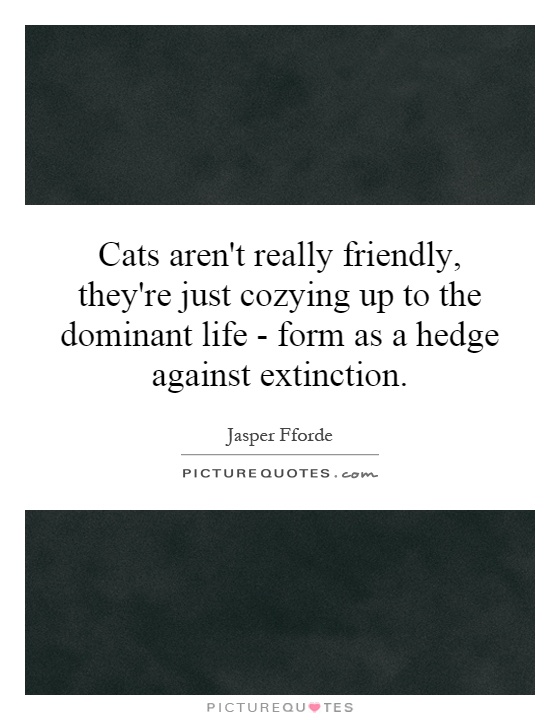Cats aren't really friendly, they're just cozying up to the dominant life - form as a hedge against extinction

Cats aren't really friendly, they're just cozying up to the dominant life - form as a hedge against extinction
Cats have long been known for their independent and sometimes aloof nature. While they may seem friendly and affectionate at times, it is often believed that their behavior is more about survival than genuine companionship. In the context of extinction, this theory becomes even more intriguing.Cats are natural predators, and their survival instincts are finely tuned. They have evolved over thousands of years to be efficient hunters and to protect themselves from threats in their environment. In the wild, cats rely on their instincts and skills to find food, avoid danger, and reproduce. This means that they are constantly assessing their surroundings and interactions to ensure their own survival.
When it comes to interacting with humans, cats may appear friendly and affectionate, but this behavior can also be seen as a strategic move to ensure their own survival. By cozying up to the dominant life-form, in this case, humans, cats are able to secure a steady source of food, shelter, and protection. In a sense, they are hedging against extinction by forming a symbiotic relationship with humans.
This behavior can be seen in both domesticated and feral cats. Domesticated cats have learned to rely on humans for their basic needs, while feral cats may still exhibit some level of independence but will often seek out human interaction when it benefits them. In both cases, cats are using their natural instincts to ensure their own survival in an ever-changing world.












 Friendship Quotes
Friendship Quotes Love Quotes
Love Quotes Life Quotes
Life Quotes Funny Quotes
Funny Quotes Motivational Quotes
Motivational Quotes Inspirational Quotes
Inspirational Quotes